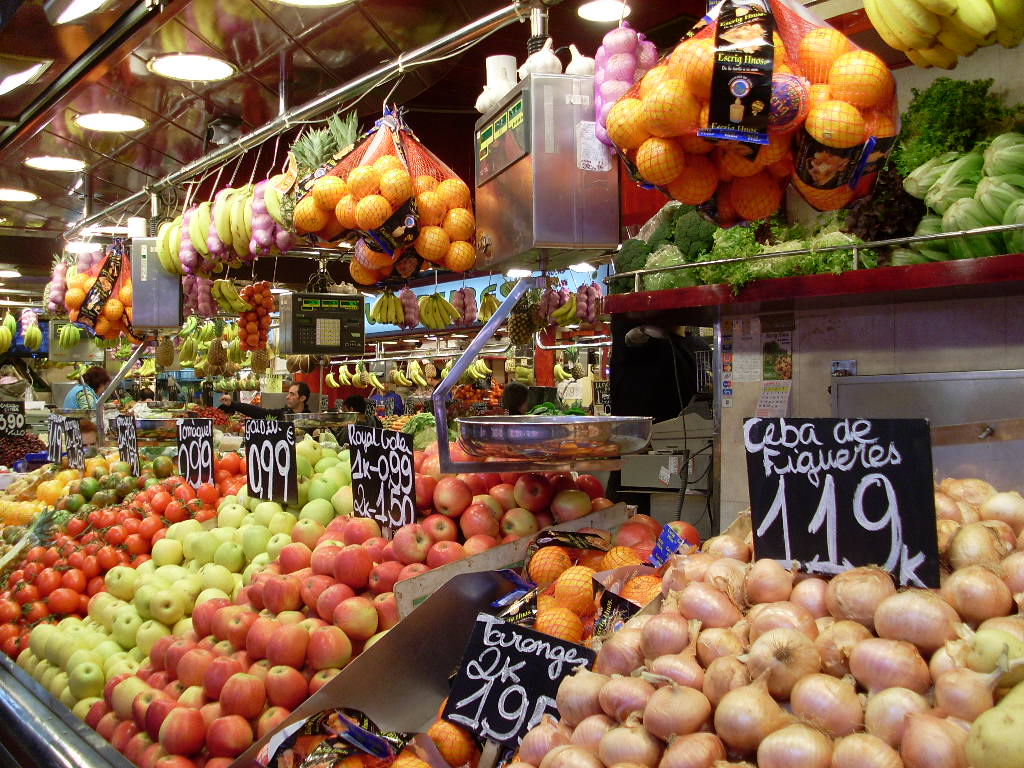
It’s a concept most people are raised with: support your local merchants. Some expats carry it with them; others choose to avoid local services like the plague, favoring instead the safety and security of the name brands they know and “trust” or places that cater to their native language, simply because they are familiar and comfortable. But supporting the local economy goes above and beyond national pride; it means actually supporting those whose services you are utilizing.
A Mexican friend of mine asked me recently why I don’t do my own laundry when I could save more money. My answer to that was simple: I make enough money so that I can afford to hire that service out. Sure, I could save a few dollars per month, but my salary is sufficient to cover it. Just like I can pay a maid to clean my house several times a month rather than doing it myself. And I prefer doing so, even if it does cost me extra, not simply because it makes my life easier, but it also supports the local economy in the place where I live. I’m providing a service to someone, which allows them to put food on the table.
It’s like the pizza place I go once a week. Sure, there is an Oxxo right across the street, and yes I can go there and pick up a cold drink like a tea or water for 8 pesos while the pizza place charges 10 pesos. I’d rather give the 2 pesos + my tip to the girls who work at the pizza place than to the Oxxo chain (which I frequent for water, tea, cell phone minutes and other things when I’m out and about; I’m not anti-convenience stores, just using this as an example) because they make tasty pizzas and I want to keep them in business.
Or the girls who do my laundry. Sure, I could buy my own detergent and take 30 minutes out of my week to wash laundry, but I don’t really care to do so. I’d rather take it and have someone do it for me and pay them a fair wage for their time plus give them tips and see their little business thrive and keep the people there working so they can have jobs to feed their families/etc.
And yes, I could have bought my own juicer within three to four months of going to visit the juice vendor I visit every other day like clockwork for my liter of jugo verde. I drink 1/2 liter per day pretty regularly; it’s amazingly healthy stuff with: nopal (cactus), pineapple/orange/grapefruit juice (depends on what’s on sale lol), celery, cucumbers, spinach, cilantro, garlic, little bit of mint and sometimes a couple of other things. But I enjoy talking to the woman who runs the place, she gives me a discount and I always leave a good tip because she’s a nice person. I’ve been going there for over around a year and a half like clockwork.
In a way, my neighbors are similar to friends and I’m on a first-name basis with many of them, and I think that’s something everyone should focus on when they are spending a lot of time in another country as an expat. You aren’t just a visitor here; you are a resident. It’s an aspect that the “lock ourselves away in a 24/7 secured compound with our own supermarket and grocery store and English speaking community” type of expats completely miss in their rush to re-create suburbia: going native.
I don’t speak to everyone in the neighborhood. When I’m walking the streets it’s mostly hola, que tal, que paso and the like to the people who live here, and the occasional random conversation for 5-10 minutes. But I have specific merchants that I frequent, plus the maid I’ve been using for over a year now, who I’ll spend 30 minutes or more just yapping with most every time I see them and it’s their personalities as well as the fact that I enjoy their services which keeps me coming back for more.
Not everyone likes to use these types of services, but they are available to those who want to use them. They are affordably priced at the local rates. And while some people say that I may have an unfair advantage over Mexicans by being from the U.S. and working on the euro and dollar, I cry foul in that regards. My job is something that anyone, anywhere, in any country, from any language, can do. The Spanish language market, for example, is a massive place where there is a slew of work in booming country-wide economies, creating a massive workload for Spanish-speaking natives from all around the world.
That also means there’s plenty of work for expats who have integrated into their local areas and speak the language. I’m continually amazed at how many opportunities I find just by striking up conversations with people while I’m out and about, or just by asking friends I have on the local level. For example, I’m going to be teaching a class in October, November and December here in Cancun on the topics covered in The Expat Guidebook in a combination of English and Spanish, as well as the same program online in English for members of the community in a Skype setting.
The point is, by supporting my local environment while living here it is giving back to me and providing me with additional income and partnerships. The people I’ve found locally who are interested in the program are all people I’ve met through my integration and immersion in the local environment. Business connections as well; it’s an aspect of being a long-term expat reading the whole book as opposed to a tourist or backpacker just passing through and skim-reading.
And lastly, but not leastly, is that the concept of nationalism is absolutely ridiculous. We are all Earthlings, from Planet Earth. We are all Human Beings. American, Egyptian, Puerto Rican, Colombian…there is no difference between any of these people. The concept of nationalism is a purely made-up fiction used by governments to inspire people to slave away as a serf for the “good of the country. “The reality is that if you are living in Japan, you are using Japan’s services and thus you should be supporting Japanese companies and services, even if you were born in Britain or the United States or Australia or Germany or Italy. You aren’t living in those countries, thus you shouldn’t be concerned with supporting their services.
Remember, at the end of the day we all share the same blood, and wherever you live the people you rub shoulders with are the ones you should be supporting. After all, it is their services which make your life easier, give you a place to live, streets to walk/drive on, Internet to use, hospitals to access, accountants and other professionals who have used the education system and so on and so forth. Leave the national pride back in your home country where it belongs, because where you were born is nothing more than an accident and you are no different than someone living in another place on the planet.
Don’t forget to sign up for our free newsletter for several-times-a-week, your-eyes-only travel and entrepreneur tips, plus receive a complimentary copy of our 85-page starter book on location independence and living abroad, 30 Ways in 30 Days.








Groovy, Josie! Thanks for your comments and here’s hoping you see continued enjoyment at the local level to “go native”
Thank you for writing this, and for rntisivieg it. I’ve been in Belgium for 4 months, and I’m just starting to emerge from my own BBC coma. My teary outbursts have confused my Belgian boyfriend, and I don’t dare worry my family and friends at home. But I’ve started to meet some other expats and, as you say, talking with people who know what you’re going through is oh so helpful. That is my best advice for people in the beginning months of being an expat: talk to some other expats. Meet for coffee and confide in them. It lifts a weight of your own chest, and off of your relationship. I’m looking forward to things getting even better
Hey, Will Thanks!
Thanks!
Well, I’m both lazy AND concerned with the opportunities lost (time investment of doing laundry), but the flip side is that I have some very good reasons to justify my laziness =P
But in all seriousness, it’s a mixture. Sure, it’s less of a hassle for me, but it’s also a way to ensure that the services I am using can continue to provide me with said services. That’s why I’m a firm believer in going local AND tipping on top of that to ensure that these people know just how valued their services are to me.
And some of it is simply related to time. That’s why I hire a maid to clean my house. I just don’t want to deal with it, and it’s easier for me to simply pay someone to do it. Plus, I like the woman, she does a great job, she has grandchildren and I’m helping to supplement her pension (which is pennies just like anywhere else in the world).
Tim,
Welcome back!
I used to think that people who had cleaning services were:
1. Lazy
2. Concerned with the opportunity cost of their time (i.e. Warren Buffett).
This post has changed my view of hiring cleaning services and local help.
Hola, Deej! Thanks for dropping by!
I think a lot of people try but fall short of supporting local, because in their mind local is tied into nationality…which it’s not. It’s all about supporting the local businesses who are supporting you and allowing you the life of freedom and travel that you enjoy so much. (“you” being subjective here).
Thanks for the comment!
As a businessperson that relies on the support of locals, this is a great piece. When I travel I try to keep the same mindset when it comes to the places we visit or eat.